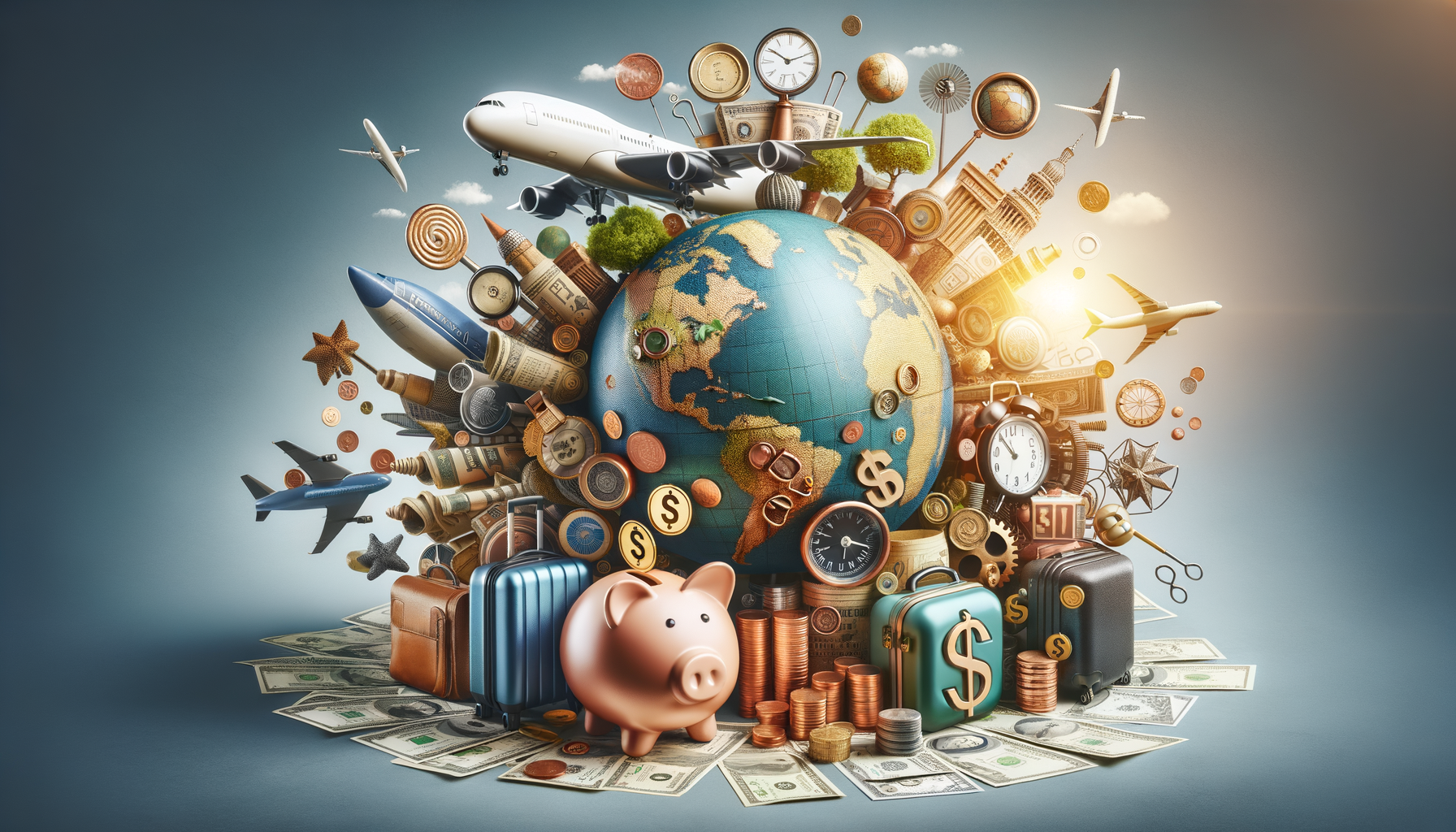
Mastering the Art of Travel Savings: A Comprehensive Guide
Understanding the Importance of Travel Savings
Traveling is one of life’s most enriching experiences, offering a chance to explore new cultures, cuisines, and landscapes. However, the financial aspect of travel can be daunting. Understanding the importance of travel savings is crucial for making these adventures feasible and stress-free. By prioritizing savings, travelers can ensure they are prepared for both expected and unexpected expenses, enhancing the overall experience.
Financial planning for travel involves more than just setting aside money. It requires a strategic approach to budgeting, prioritizing, and making informed decisions. This ensures that your travel goals align with your financial reality, allowing you to explore the world without compromising your financial health. Whether you’re planning a short getaway or a long-term adventure, travel savings can make a significant difference in the quality and enjoyment of your trip.
Creating a Travel Budget
Creating a travel budget is the cornerstone of effective travel savings. A well-structured budget helps in tracking expenses and identifying areas where you can cut costs. Start by listing all potential expenses, including transportation, accommodation, meals, activities, and miscellaneous costs like souvenirs and travel insurance.
Once you have a comprehensive list, research the average costs for each category in your chosen destination. This will give you a realistic idea of how much you need to save. It’s also wise to include a buffer for unexpected expenses. A good rule of thumb is to add an additional 10-20% to your total estimated budget.
Regularly reviewing and adjusting your budget as your travel date approaches ensures that you remain on track. Consider using financial tools or apps to help manage and monitor your savings progress. These tools can provide insights into spending habits and offer tips for optimizing your budget.
Smart Saving Strategies
Implementing smart saving strategies can significantly boost your travel fund. Consider setting up a dedicated travel savings account to keep your travel money separate from your regular finances. This not only helps in tracking your savings but also minimizes the temptation to dip into your travel fund for other expenses.
Automating your savings is another effective strategy. By setting up automatic transfers from your main account to your travel savings account, you ensure consistent contributions without the need for manual intervention. Even small, regular deposits can accumulate over time, making a substantial impact on your travel budget.
Additionally, cutting back on non-essential expenses in your daily life can free up more money for travel. Consider dining out less frequently, reducing impulse purchases, or finding alternative entertainment sources. These small sacrifices can add up, bringing you closer to your travel goals.
Finding Deals and Discounts
One of the most effective ways to save on travel is by taking advantage of deals and discounts. This requires a proactive approach to researching and comparing options. Start by subscribing to newsletters from airlines, travel agencies, and deal websites. These platforms often offer exclusive discounts to subscribers, providing early access to sales and promotions.
Flexibility with travel dates can also lead to significant savings. Traveling during off-peak seasons or mid-week can result in lower prices for flights and accommodations. Additionally, consider alternative airports or destinations that offer similar experiences at a lower cost.
Loyalty programs and rewards credit cards can also provide valuable discounts and perks. By accumulating points through everyday spending, you can earn free flights, hotel stays, or upgrades, enhancing your travel experience without additional costs.
Maximizing Value for Money
Maximizing value for money is about making informed choices that enhance your travel experience without overspending. This involves prioritizing experiences that offer the most personal value, whether it’s a cultural event, a culinary experience, or an outdoor adventure.
Consider opting for experiences that are unique to your destination and provide lasting memories. Free or low-cost activities, such as hiking, visiting museums on free admission days, or exploring local markets, can offer rich cultural experiences without breaking the bank.
Accommodation choices also play a significant role in maximizing value. Consider staying in budget-friendly options like hostels, guesthouses, or vacation rentals, which often provide more authentic experiences than traditional hotels. Additionally, cooking some of your meals can save money and allow you to explore local ingredients and flavors.
Ultimately, maximizing value for money is about balancing cost with experience, ensuring that every dollar spent contributes to a fulfilling and memorable journey.